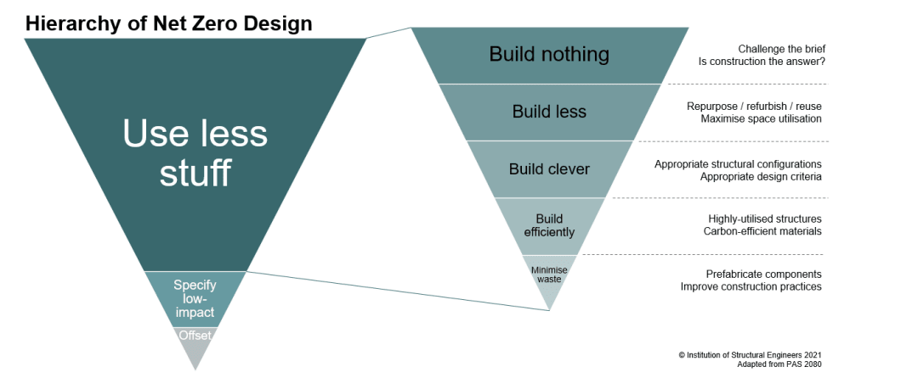February 2025
Australia’s transport sector is at a crossroads, with growing emissions posing a significant challenge to achieving the nation’s net zero targets. The recent February webinar - Path to Net Zero: Decarbonising Australia's Transport System, hosted by the Australian Institute of Transport Planning and Management (AITPM), provided a platform for transport professionals to explore policy recommendations and industry insights on accelerating the transition to a low-carbon transport future.
The Need for Action
Transport accounts for nearly 20% of Australia’s total greenhouse gas emissions, making it the second-largest contributor after energy. Unlike other sectors, transport emissions have continued to rise due to an ageing vehicle fleet, increased reliance on larger vehicles, and limited progress in transitioning away from fossil fuels. With the Australian Government committed to reducing emissions by 43% by 2030 and achieving net zero by 2050, urgent and coordinated action is required.
AITPM’s Policy Response
AITPM’s first-ever policy issues paper, The Path to Net Zero: Decarbonising Australia’s Transport System, was developed by an exclusive working group of transport professionals from various areas of the industry.
Following extensive consultation, the paper presents 22 recommendations structured around the Avoid, Shift, Improve framework, with an additional pillar—Lead—to emphasise the role of AITPM and the broader transport community in driving change. The webinar focused on five priority recommendations:
1. Adopting an Avoid-Shift-Improve Framework
Governments at all levels should embed the Avoid-Shift-Improve (ASI) framework in transport planning. This means:
- Avoid: Integrating land use and transport planning to reduce the need for travel and new infrastructure.
- Shift: Encouraging sustainable transport modes such as public and active transport.
- Improve: Enhancing the efficiency of vehicles and infrastructure through electrification, fuel economy standards, and low-carbon construction materials.
2. Investing in Active Transport
Currently, Australian governments allocate between 0.5% and 1% of transport budgets to walking and cycling infrastructure—far below the 20% benchmark seen in leading nations like Ireland and the Netherlands. AITPM calls for a significant increase in active transport funding to create safe, direct, and connected walking and cycling networks, fully separated from high-speed and high-volume traffic.
3. Maximising Modal Shift to Public Transport
The shift from private vehicles to public transport is essential to reducing emissions. AITPM recommends using all available levers to:
- Expand public transport services at a faster rate than road networks.
- Reduce fares and improve affordability.
- Enhance public transport travel times relative to car travel.
4. Reducing Embodied Carbon in Infrastructure
Beyond operational emissions, transport projects generate substantial embodied carbon through the construction of roads, railways, and bridges. AITPM supports the principles of PAS 2080—a global standard for carbon management in infrastructure. Recommendations include prioritising ‘no-build’ options, optimising material use, and applying low-carbon construction methods, such as the Recycled First policy adopted in Victoria.
5. Conducting a National Roads Review
Inspired by the Welsh Roads Review, AITPM proposes a national review of road projects to assess their alignment with net zero goals. The review would examine whether projects:
- Support modal shift and reduce emissions.
- Improve safety through small-scale interventions.
- Adapt to climate change impacts.
- Enhance accessibility and connectivity in sustainable ways.
Looking Ahead: Implementation and Advocacy
AITPM is committed to translating these recommendations into tangible actions. Key next steps include:
- Establishing task groups to develop targeted policy resources and advocacy strategies.
- Collaborating with industry associations to strengthen the transport profession’s voice on decarbonisation.
- Expanding professional development programmes, including a national webinar series on best practices.
- Engaging governments at all levels to align transport investments with sustainability objectives. Which has recently included a submission to the Australian Government on this topic.
The Path to Net Zero initiative marks a significant shift for AITPM, signalling a stronger advocacy role for the transport professions. By leveraging the collective expertise of its members and working closely with policymakers, AITPM aims to drive meaningful change in reducing Australia’s transport emissions.
Decarbonising Australia’s transport system is a complex yet urgent challenge. The Path to Net Zero paper and webinar highlight the critical need for a coordinated policy approach, investment in sustainable transport, and a rethink of traditional infrastructure priorities. With the support of transport professionals, governments, and industry, Australia can move towards a cleaner, more efficient, and more equitable transport future.
AITPM Pre-Budget Submission: Decarbonising Australia's Transport System
To further support this transition into policy and advocacy, AITPM has submitted a comprehensive Pre-Budget Submission to the Australian Government, reinforcing key measures to drive emissions reductions in the transport sector. With transport emissions continuing to grow, decisive and collaborative action is needed across the sector to meet Australia’s Net Zero by 2050 target. AITPM stands ready to support the Australian Government in delivering a sustainable and prosperous transport future for all Australians.
How you can stay up to date by joining the AITPM Community
Stay informed with AITPM’s latest policy developments, advocacy initiatives, and industry insights driving the transition to a net zero transport future. From key government decisions to emerging trends in mobility and infrastructure, our updates will keep you ahead of the curve. Be the first to access exclusive events, thought leadership, and opportunities to contribute to shaping sustainable transport solutions.
Join the AITPM mailing list today and join the community.



